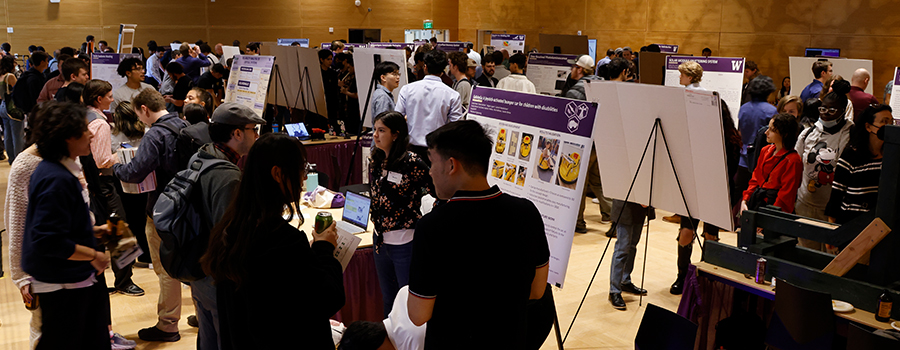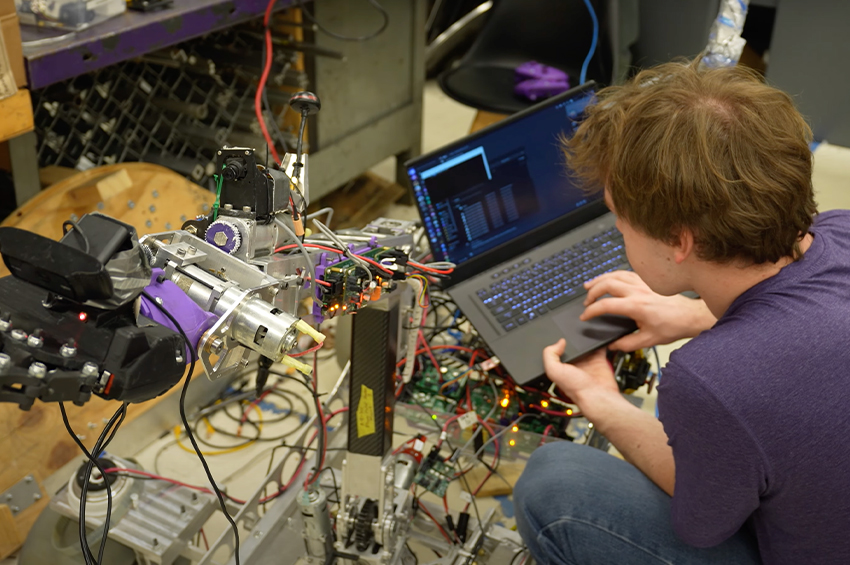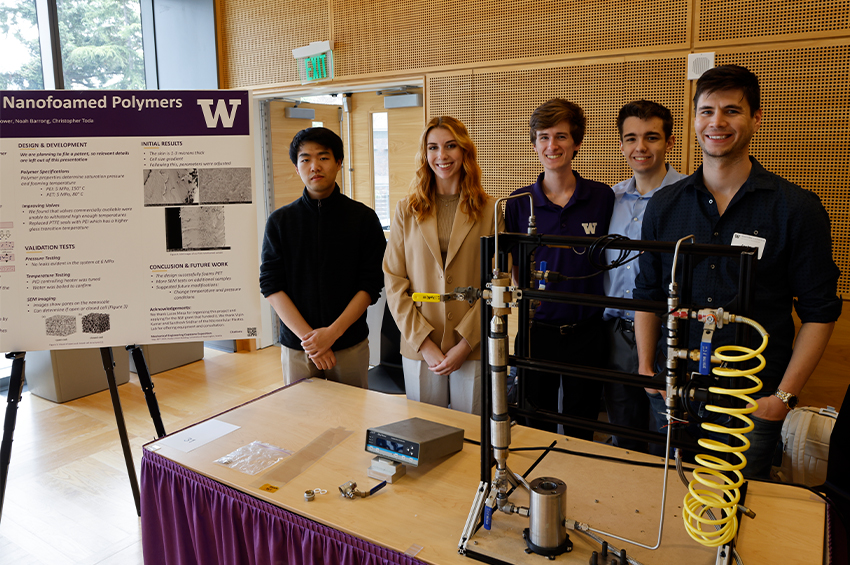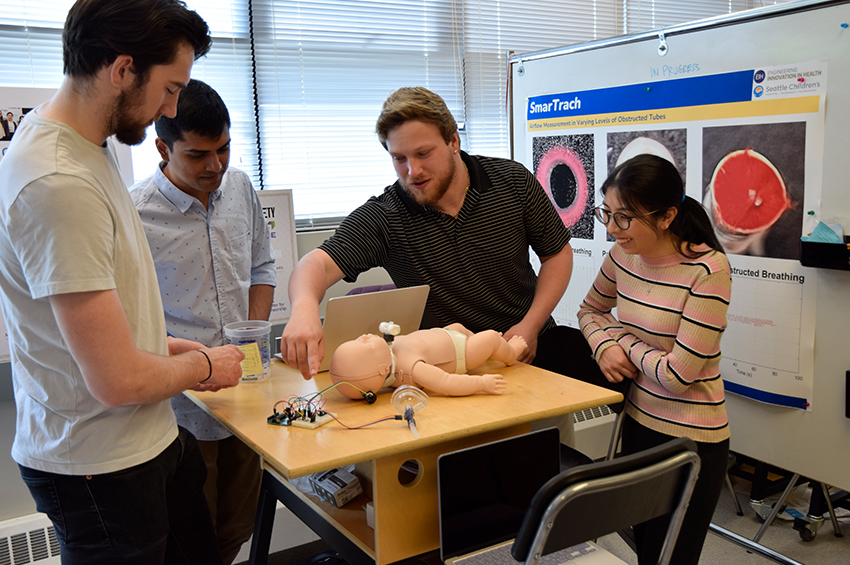Senior design projects (also known as "capstone" projects) are the centerpiece of the ME curriculum's professional component, allowing students to be involved in interesting, real-world activities. Each senior is required to complete this course. Capstone projects are each advised by a full-time tenured or tenure-track faculty member who works with the teams.

For more detailed information, please visit ME Undergraduate Advising Canvas: Capstone Page.
Without exception, all ME 495 projects must be team efforts. Teams must consist of between three and five students.
Project topics
Students can pursue their varied technical and professional interests through a selection of projects that include:

Student club-based
- E-Truck
- Human Powered Submarine
- Husky Robotics
- Formula Motorsports

Other
- Industry-sponsored projects
- Student-inspired projects
- Faculty-guided projects
Design process
Capstone design projects allow students to experience the rigor and structure of a full-cycle design, including:
Problem definition
Benchmark studies
Concept generation and feasibility study
Engineering design analyses
Prototype fabrication and testing
Through the capstone courses, students learn to fully define a design problem. This includes not only a statement of the project deliverables and objectives in the layman's or client's terms, but also a full definition of the agreed upon functional requirements and constraints (quantified). In the case of the competition-based projects, the problem definition is based on the detailed rules and guidelines of the competition.
All of the capstone projects draw upon at least several fundamental engineering science areas and involve significant quantitative analysis often in the form of numerical simulation, typically preceded by approximate analytical solutions. Industry-inspired projects are carefully selected on the basis of the required fundamental engineering science areas and also to align with the core expertise of the faculty adviser.
All projects must include a written report. Although the form of the report may vary according to the nature and requirements of the individual project, all final reports must contain the following (or equivalent) sections:
- Risk and liability
- Ethical issues
- Impact on society
- Impact on the environment
- Cost and engineering economics
Capstone expo
At the end of each academic year, ME undergraduates showcase their capstone design projects through posters, prototypes, exhibits and demos at an annual capstone expo.
Sponsor a project
- For health-related projects, contact Kat Steele, Albert S. Kobayashi Endowed Professor
- For all other types of projects, contact Jill Kaatz, CoE Industry Capstone Program Director
Industry Capstone Program
The Industry Capstone Program brings together UW students and professionals to tackle real-world, interdisciplinary engineering problems. Sponsors bring in projects from their organizations and provide support to teams of creative, talented engineering students who will design and build innovative solutions.
